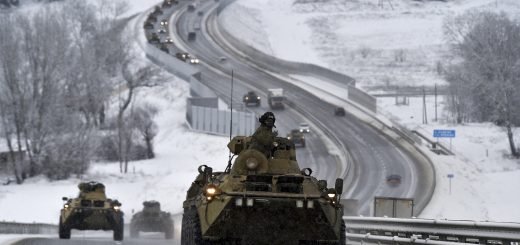Looking West: India’s Energy Requirements and its West Asia Policy
Given India’s traditionally neutral West Asian strategy, India’s growing relations with Israel has not affected India’s Arab links, though a unilateral approach by India in issues like the Palestinian cause may anguish Arab partners, whose cooperation is equally important for India. – Adarsh Aravind*
Energy security has long been a concern for India, a global giant in oil consumption. The fuel demands are growing fast in proportion to its rapid economic development. Oil and natural gas are expected to remain India’s main source of energy in the coming two to three decades. Due to the lack of significant domestic reserves of oil and natural gas, India has looked towards the geopolitically challenging West Asian region to fulfil its requirements throughout much of its independent history. In today’s security scenario, energy security and foreign policy are separated by a blurry line. Due to this fact, India has seen its links with the West Asian region as a commercial relationship, mainly driven by flows of energy. Yet major changes in the West Asian politics especially the Israel factor, demand a new interpretation of the region’s importance to India. Therefore, it’s important to understand India’s strengths and weaknesses in dealing with countries of West Asia and to come up with suggestions for the government to frame a holistic engagement strategy.
Reaching any level of energy security is an epic mission for a nation like India where more than 288 million citizens live under the “energy poverty line” according to the International Energy Agency. Grasping its vitality, India presently uses every mode of yielding energy feasible to accomplish its energy discrepancies. More than 66 percent of the country’s overall viable energy yield is anticipated to be offered by two main fuel sources, coal and fossil fuels. The plenty available coal is getting less cost-effective day by day. And in the case of fossil fuels, the nation has not been blessed with plentiful reserves of it. The demand for oil and gas has already beaten domestic production since decades ago due to its economic and population rise. Today, India imports more than 80 percent (2.6 million BPD(Barrel Per Dollar)) of its oil needs at a fluctuating cost.
The Arab Gulf along with the larger West Asian region is India’s major provider of crude oil. The Kingdom of Saudi Arabia is India’s solo chief source of oil as of 2017. As Iran is getting free from international embargos, the country might possibly become India’s major energy partner in the near future due to its huge natural gas reserves. India’s immense necessity for hydrocarbons and its growing dependency on West Asia has forced the country to diversify its energy sources to regions like Africa and Latin America. India is building deeper relations with countries like Nigeria and Venezuela and trying to capitalize on these regions through firms like ONGC (Oil and Natural Gas Cooperation) and RIL (Reliance Industries Limited). Other regions where India is seeing to develop its energy aspirations in the future includes the South China Sea region, Australia and even the Arctic. India became an observing member of the Arctic Council in 2013 and has presented interest in uniting with Russia to partake in exploration and extraction of hydrocarbons around the North Pole, which is fast turning ice-free due to global warming. But bureaucratic hurdles and many international issues stand as a blockade to the complete fulfilment of these diversification initiatives. And thus, it is assessed that India will continue to depend on the West Asian countries for its energy requirements.

Indian Prime Minister Narendra Modi with Saudi Arabian King Salman bin Abdulaziz Al Saud | Image: PIB
One country to be given extreme importance while analysing India’s West Asia Policy is Israel, India’s major strategic partner. While India’s relations with the Islamic world is mainly driven by energy, the country’s robust and premeditated relations with Israel is due to the economic, technological and military triumphs of Israel including the influence of AIPAC in the US. India has also shown its interest in partnering with Israel in its offshore oil-and-gas exploration blocks including the Leviathan natural gas field, located in the eastern Mediterranean Sea to develop energy ties with the Jewish State. Given India’s traditionally neutral West Asian strategy, India’s growing relations with Israel has not affected India’s Arab links, though a unilateral approach by India in issues like the Palestinian cause may anguish Arab partners, whose cooperation is equally important for India.
Read: India and West Asia: Security and Cooperation Overview
In this situation, India can carry forward these actions to enhance its energy security strategy and ensure continuous energy flow
- India’s should improve its foreign presence by recruiting skilled and able personnel including experienced policy analysts in its embassies and missions abroad to ease the policymaking process.
- Intensification of direct investments in West Asian energy resources, both at the public and private sector levels. Accelerate earlier assurances of energy cooperation with countries such as Iran and use security and defence accords with these nations to make healthy measures for the fortification of these investments.
- Enhance energy cooperation with other Asian countries like China, Japan, South Korea etc. Form a cooperative partnership to ensure continuous energy flow to the region.
- Develop closer ties with countries like Iceland, Israel etc. to develop India’s renewable energy technology and to back up with alternate energy.
- Work to sign more defence treaties on bilateral (such as agreements signed with Qatar and Saudi Arabia etc.) and institutional levels (such as GCC). And make sure to include energy as a strategic asset in this agreement
- Conduct joint military training exercise sequences with more states from West Asia in the Arabian Sea by bringing up issues such as terrorist threats to oil assets, antipiracy, guard of sea-lanes of communication etc.
- Look forward to diversifying its energy sources to African, Latin American and other energy-rich countries to secure its energy security.
- Promote the public and private companies to invest in oil-rich regions in the world and promote them to get hold of untapped energy resources around the world.
New Delhi does not have faith in the policy of pledging to one or the other side in this unstable political milieu of West Asia to any further extent. This inkling is mostly recognized by the numerous West Asian states as well. The next step in Indo-Arab ties will still apparently, the trunk from the way Iran rises, and the mode in which the United States readjusts its “Middle East” policy. Intra-Arab conflicts have transformed the nature of their relationship with Israel. There’s a possibility that India’s growing relationships with Israel might not affect Arabs, especially due to the domination of issues like Qatar rift, Iran’s rise etc. in regional politics. Still, India must see itself as a major rising power and carefully balance its West Asia policy keeping cost and benefit in mind. To support its energy requirements, India will have to fetch systemic changes in its political, bureaucratic, economic and strategic outlooks towards the region to reap the benefits of closer cooperation and to ensure its energy security.
*Adarsh Aravind is an Independent Strategic Analyst and a postgraduate from the Department of Geopolitics and International Relations, Manipal University, India. He is specialized in Israel Studies, Counter Terrorism, India’s West Asia Policy, Jewish History etc.
The views and opinions expressed in this article are those of the authors and do not necessarily reflect the views of The Kootneeti Team.


















